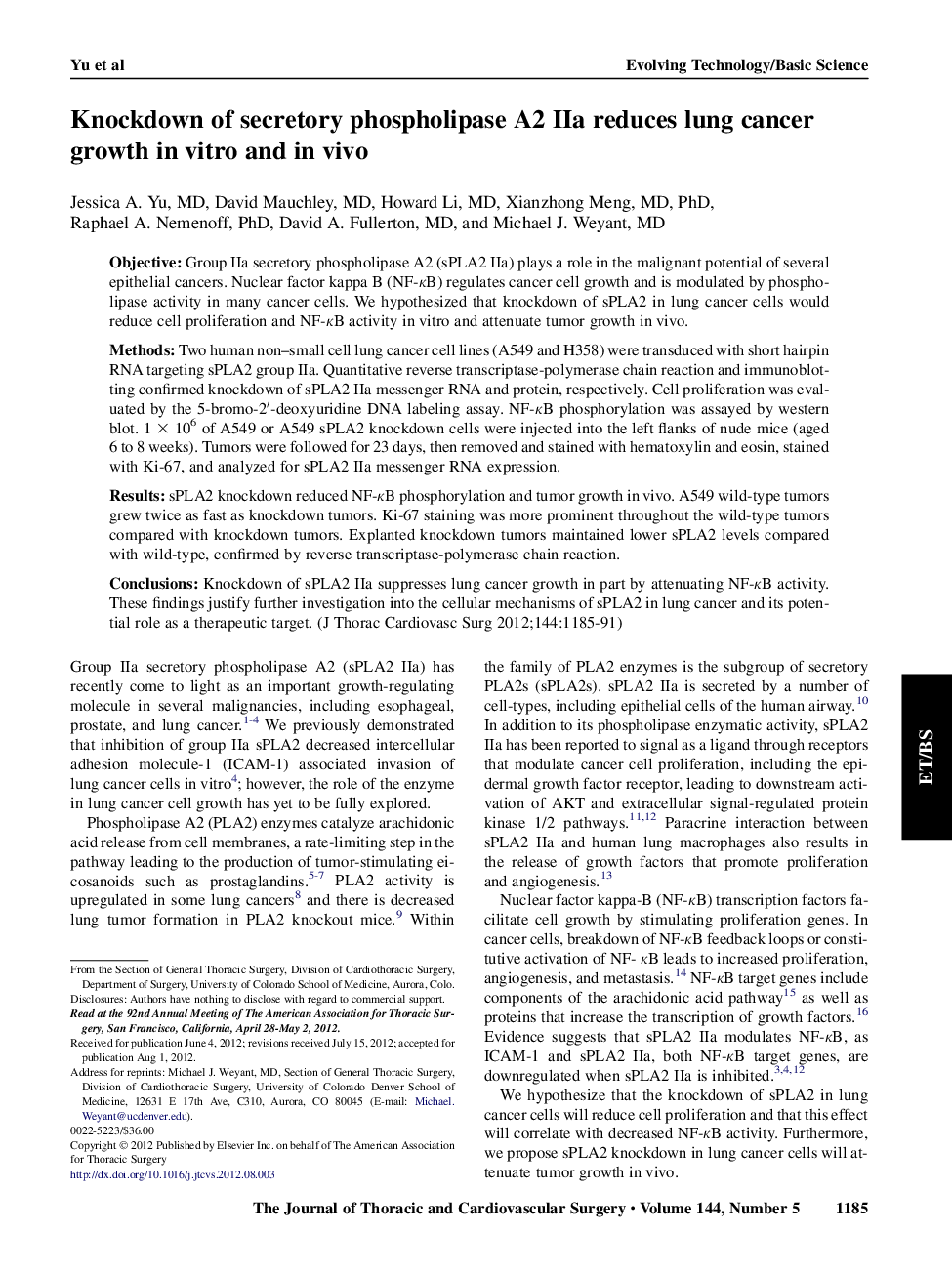| Article ID | Journal | Published Year | Pages | File Type |
|---|---|---|---|---|
| 2981548 | The Journal of Thoracic and Cardiovascular Surgery | 2012 | 7 Pages |
ObjectiveGroup IIa secretory phospholipase A2 (sPLA2 IIa) plays a role in the malignant potential of several epithelial cancers. Nuclear factor kappa B (NF-κB) regulates cancer cell growth and is modulated by phospholipase activity in many cancer cells. We hypothesized that knockdown of sPLA2 in lung cancer cells would reduce cell proliferation and NF-κB activity in vitro and attenuate tumor growth in vivo.MethodsTwo human non–small cell lung cancer cell lines (A549 and H358) were transduced with short hairpin RNA targeting sPLA2 group IIa. Quantitative reverse transcriptase-polymerase chain reaction and immunoblotting confirmed knockdown of sPLA2 IIa messenger RNA and protein, respectively. Cell proliferation was evaluated by the 5-bromo-2′-deoxyuridine DNA labeling assay. NF-κB phosphorylation was assayed by western blot. 1 × 106 of A549 or A549 sPLA2 knockdown cells were injected into the left flanks of nude mice (aged 6 to 8 weeks). Tumors were followed for 23 days, then removed and stained with hematoxylin and eosin, stained with Ki-67, and analyzed for sPLA2 IIa messenger RNA expression.ResultssPLA2 knockdown reduced NF-κB phosphorylation and tumor growth in vivo. A549 wild-type tumors grew twice as fast as knockdown tumors. Ki-67 staining was more prominent throughout the wild-type tumors compared with knockdown tumors. Explanted knockdown tumors maintained lower sPLA2 levels compared with wild-type, confirmed by reverse transcriptase-polymerase chain reaction.ConclusionsKnockdown of sPLA2 IIa suppresses lung cancer growth in part by attenuating NF-κB activity. These findings justify further investigation into the cellular mechanisms of sPLA2 in lung cancer and its potential role as a therapeutic target.
